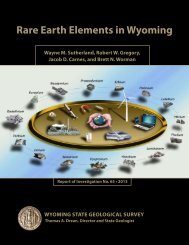RLB_UK_Riders_Digest_2013
RLB_UK_Riders_Digest_2013
RLB_UK_Riders_Digest_2013
Create successful ePaper yourself
Turn your PDF publications into a flip-book with our unique Google optimized e-Paper software.
<strong>UK</strong> CONSTRUCTION INFORMATION<br />
Site Waste Management Plans<br />
What are capital allowances?<br />
Capital allowances are a tax deduction<br />
(tax allowance) for certain capital<br />
expenditure.<br />
They reduce a taxpayer’s tax bill for a<br />
given period by being deducted from<br />
the taxable income for the period. For<br />
corporate taxpayers, this effectively equates to a cash saving of<br />
26%* of the capital allowances write down for the tax year, for<br />
individuals this is as much as a 50% cash saving of the capital<br />
allowances write down for the tax year.<br />
In April 2008 the Site Waste Management Plans<br />
Regulations came into force and with it made a legal<br />
requirement in England for a site waste management plan<br />
to be prepared on projects with an estimated cost greater<br />
than £300,000. In Wales, Scotland and Northern Ireland,<br />
site waste management plans are seen as “best practice”<br />
by their environmental standards agencies but are not a<br />
legal requirement.<br />
The Department of the Environment Northern Ireland<br />
(DOENI) consulted on proposals to make site waste<br />
management plans (SWMP) a legal requirement for certain<br />
construction and demolition projects in Northern Ireland.<br />
The consultation closed on 11 March 2011, but the<br />
implementation of the regulations is currently on hold.<br />
Site waste management plans attract points when<br />
assessing projects to sustainable standards, such<br />
as Building Research Establishment Environmental<br />
Assessment Method (BREEAM), and are a requirement by<br />
government and major private clients in attaining their waste<br />
management goals.<br />
“Construction” is deemed to be any building, civil<br />
engineering or engineering construction work, including<br />
renovation, demolition, installation, dismantling and<br />
maintenance.<br />
The aim of the Regulations is to improve resource efficiency,<br />
reduce fly tipping, help demonstrate compliance with<br />
existing waste legislation and raise and maintain standards.<br />
They also support the wider initiatives of Environmental<br />
Impact Assessment (EIA), Environmental Management<br />
Systems (EMS) and Corporate Responsibility (CR) as well<br />
as the Government Sustainable Construction Strategy.<br />
The Client must prepare a Site Waste Management Plan<br />
before construction work begins. If a project is started<br />
without a Site Waste Management Plan, the Client and the<br />
Principal Contractor are both guilty of an offence.<br />
Site Waste Management Plans should endorse the Client’s<br />
72






